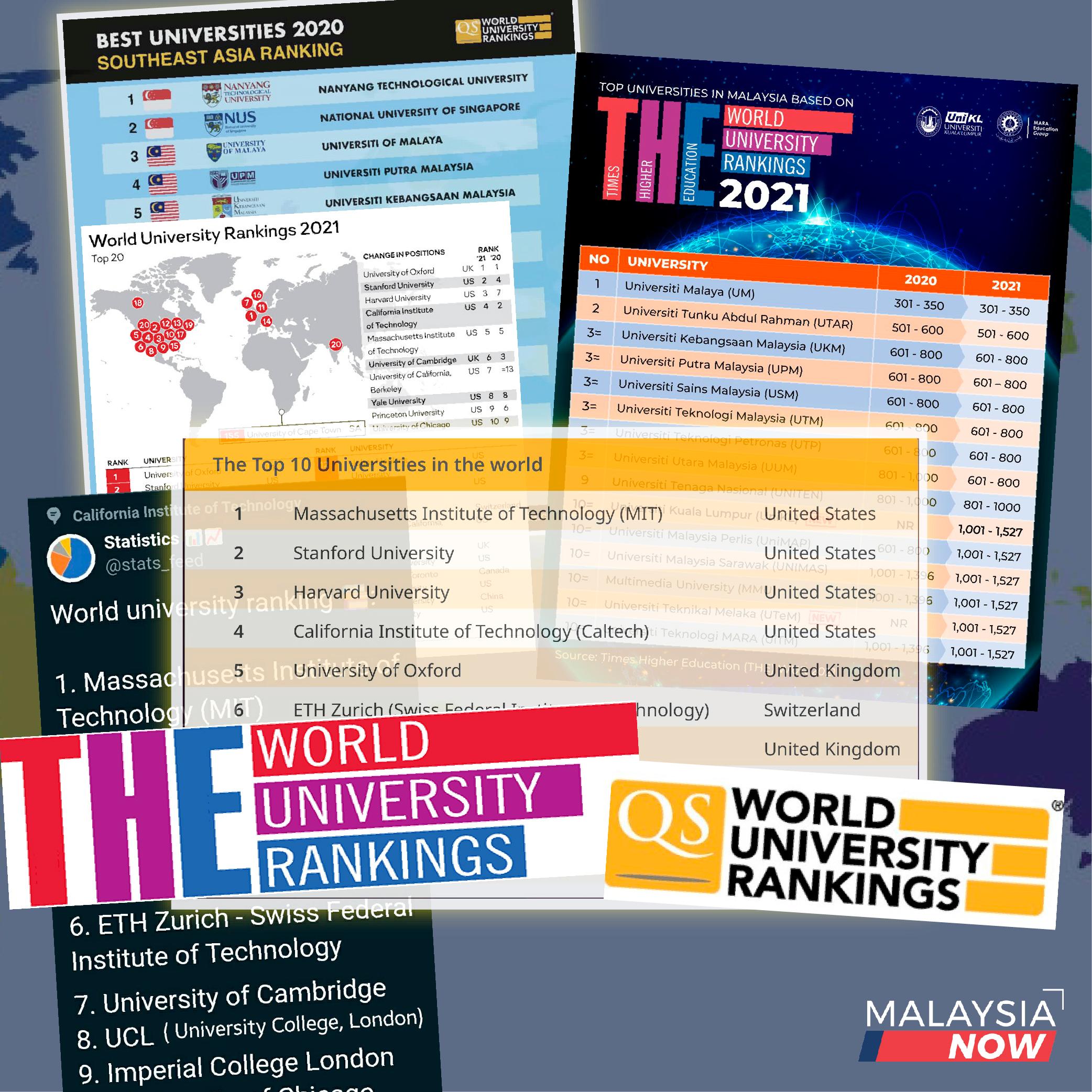‘Caught’ in ranking game, local unis miss what matters in research
Academic Faisal Tehrani warns against the 'yes man' culture, saying the strength of a university's research culture depends on the society around it.
Just In
One of Malaysia’s most controversial authors and academics agrees that the importance placed by some universities on attaining good global rankings in evaluations by agencies in the West is a form of academic imperialism.
Faisal Tehrani, an associate fellow at Harvard’s Weatherhead Center for International Affairs who has published dozens of papers on Malay history, described such rankings as a form of colonialism.
“There is no doubt about that. And none other than Profesor Syed Husein Alatas had observed this,” Faisal told MalaysiaNow, referring to the late Gerakan founder and prominent academic who had authored works challenging notions long held by Western historians, including the famous title “The Myth of the Lazy Native”.
Faisal, who is also a research fellow at Universiti Kebangsaan Malaysia’s Institute of the Malay World and Civilisation, was responding to a recent report by MalaysiaNow on a finding by two professors from the Czech Republic, placing Malaysian academics at the top of a list of authors whose works were published in more than 300 “predatory journals”, or publications with questionable content and editorial standards which often accept articles for a fee.

A total of 324 such journals published from across the world were found to have infiltrated Scopus, a Netherlands-based global citation database used as a benchmark by global university ranking agencies in evaluating universities worldwide.
The revelation re-ignited debate on the quality of Malaysian universities, which in recent times have come under pressure from critics over their low rankings in two annual global indices published in the UK.
Every year, at least two organisations publish their lists of universities from around the world, ranking them according to scores using indicators.
Last year, the Times Higher Education World University Rankings listed universities in Britain, the US and other European countries in the top 20 spots among more than 1,500 universities in 93 countries.
But many have begun to question if universities should benchmark themselves against such rankings.
Prominent former academic Chandra Muzaffar labelled such lists as “part of a larger imperial game” to perpetuate the dominance of some universities in the West.
“Portraying these universities as the acme of excellence is aimed at ensuring that the ideas, individuals and courses associated with them remain as the standard bearers of knowledge,” Chandra had told MalaysiaNow.
Science and technology as indicators
Faisal said the modern West had gotten a head start due to more than 200 years of colonial adventure in the East where its wealth and heritage had been exploited.
“This includes local wisdom,” said Faisal, the author of seven books banned by the Malaysian government during the Barisan Nasional era.
He also questioned if methods used by QS were more liberal and subject to commercial interests, as its list had placed Malaysian universities higher than the one published by Times Higher Education’s ranking.
“So in the end, we are deceived by these games. We are caught by it and we chase after it, when what we must aim for is something else.”
But Faisal admitted that the higher ranking given to Western institutions could be due to the importance placed on science and technology.
He said science and technology had been the cornerstone of the Industrial Revolution from the West, and that it was understandable that they had become the main factor in gauging a university’s performance.
But he said the Industrial Revolution only came about due to reforms.
“The Eastern and Muslim world, or the ‘Orient’, had already gone on such a path, but we turned back due to the colonial disruption.”
He said a university could only be as good as the strength of the society around it to engage in creative and critical thinking.
“These are the two core aspects of the culture of research.
“To attain the culture of research is not easy as society itself must be taught how to think, not to be a yes man, so that it can have the courage to be creative.
“The culture of research is more difficult than the culture of manufacturing and services which we emphasise so much in our society.”
Subscribe to our newsletter
To be updated with all the latest news and analyses daily.
